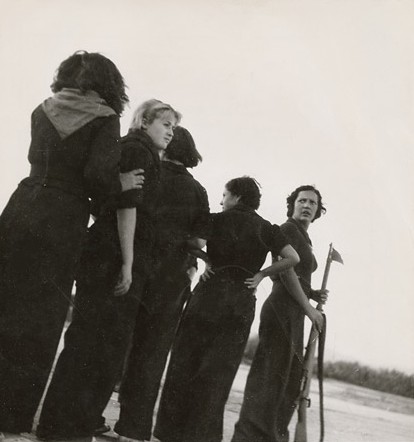Tags
bigotry, biographical fiction, book review, Daniel Boone, eighteenth century, episodic story, flawed narrative, frontier, hardship, hero worship, historical fiction, Kentucky, Native Americans, Patricia L. Hudson, physical detail, Rebecca Boone, slavery, war, western expansion
Review: Traces, by Patricia L. Hudson
Fireside/Univ. of Kentucky, 2022. 278 pp. $28
One night in 1760, Daniel Boone returns unexpectedly to the cabin he’s built for his family at the fork of the Yadkin River in North Carolina to tell his wife, Rebecca, they have to leave. Now. Native American warrior bands have attacked nearby settlements and are surely headed the Boones’ way. There’s not a moment to lose; while Daniel tends to the livestock, Rebecca must gather the children.
Rebecca’s furious, because her husband’s always away, and because she never wanted to move to Yadkin in the first place. But after their wedding, he insisted, so there they are. To uproot seems natural to Daniel, another source of conflict, and as Rebecca quickly assesses what she must leave behind, she hates every second of it:
Her mother’s prized pewter platter—too heavy. The rug beneath the rocker was her sister Martha’s handiwork, but hardly a necessity, no matter how much her heart ached to leave it behind. She focused on packing foodstuffs—bags of dried beans, a slab of salt-cured fatback, her best iron stewpot—even as her eyes continued to circle the room, saying a silent goodbye to possessions she’d thought would be lifelong companions.
You can guess that this scene will recur throughout Rebecca’s life. Her husband has wanderlust, and despite his charm, patience, and tenderness, she wishes he could settle down—or keep his promises about how many months he’d stick around each year before traipsing into the forest. Since Martha has married Daniel’s younger brother, Ned, who’s more responsible and a homebody, this interconnected family has intriguing conflicts.

A 1907 photograph of a cabin on one of Boone’s tracts, Jessamine County, Kentucky (courtesy Library of Congress, via Wikimedia Commons; public domain)
Hudson has done a great service illuminating the women behind Daniel Boone’s legend, his wife and, as the story progresses, his daughters. You can’t help admire their spirit, dedication, and strength of character, whether to put up with male vanity or imperiousness, or simply to will their family to survive.
Hudson also knows eighteenth-century frontier life intimately, which her physical descriptions vividly re-create. I come away with a greater appreciation of how demanding and perilous that life was. The author portrays Boone as a man who respects and has some understanding of Native American life and customs; what a contrast to everyone else, whose bigotry forms another theme.
But as a novel, Traces doesn’t work well. There’s no particular question that the narrative must resolve, unless you count Rebecca’s smoldering anger toward her often-absent husband and what might result. Even there, you know how that’ll go, not least because her physical attraction for Daniel works against her (perhaps too easily, at times). Rebecca’s nascent attraction for her brother-in-law offers potential, but that too fades in substance, even if its legacy hangs around.
Generally, I like how Hudson has portrayed her two principal characters, though I think she’s done a better job with Boone–odd, considering he has no narrative voice. But he’s thought about the world and his place in it, whereas Rebecca, though you understand her conflicting desires, feels more limited in scope. (Many emotional moments also end with the narrative telling what Rebecca feels rather than showing it, which would have been an opportunity to expand her range.) One poignant aspect of their marriage is that he’s literate, and she isn’t; he’s tried to teach her, but she can’t keep the letters in her head.
However, their interactions feel repetitive, as they state (or, as Rebecca sometimes does, swallow) their wishes. There’s no unified plot or climax. Rather, Traces has episodes, each with its own external threat (disease, enemies within or without the settlement), perhaps under slightly different circumstances but, in the main, much like its predecessors. I would have wanted widening internal conflicts, not just external ones. And though the Boones suffer painful losses, I would have wanted at least two of those to be less predictable.
Maybe the storytelling style results, in part, because Hudson seems to hew closely to Boone’s biographical history. Such novels, I think, risk lacking a coherent, tightly woven plot or climactic punch because few lives lend themselves to drama, except in disparate moments. History’s unkind to novelists, that way. Also, to carry her story into angles and corners Rebecca might not have seen, Hudson has a couple Boone narrate daughters a few sections. Unfortunately, their voices don’t sound age-appropriate and remind me of Rebecca’s.
As for the political themes, I accept Daniel’s sensitivity toward and fascination with Native Americans and Rebecca’s friendship with a slave woman (though I suspect the white woman would have had lingering doubts and prejudices). But the last few sections seem determined to embrace forgiveness, capital F, a neat wrap-up that may be too easily earned—and, as with Rebecca’s voice occasionally, feels modern.
Read Traces, if you will, for the setting, the taste of frontier life, and the women behind the great man’s legend. For the rest, I can take it or let it alone.
Disclaimer: I obtained my reading copy of this book from the public library.





